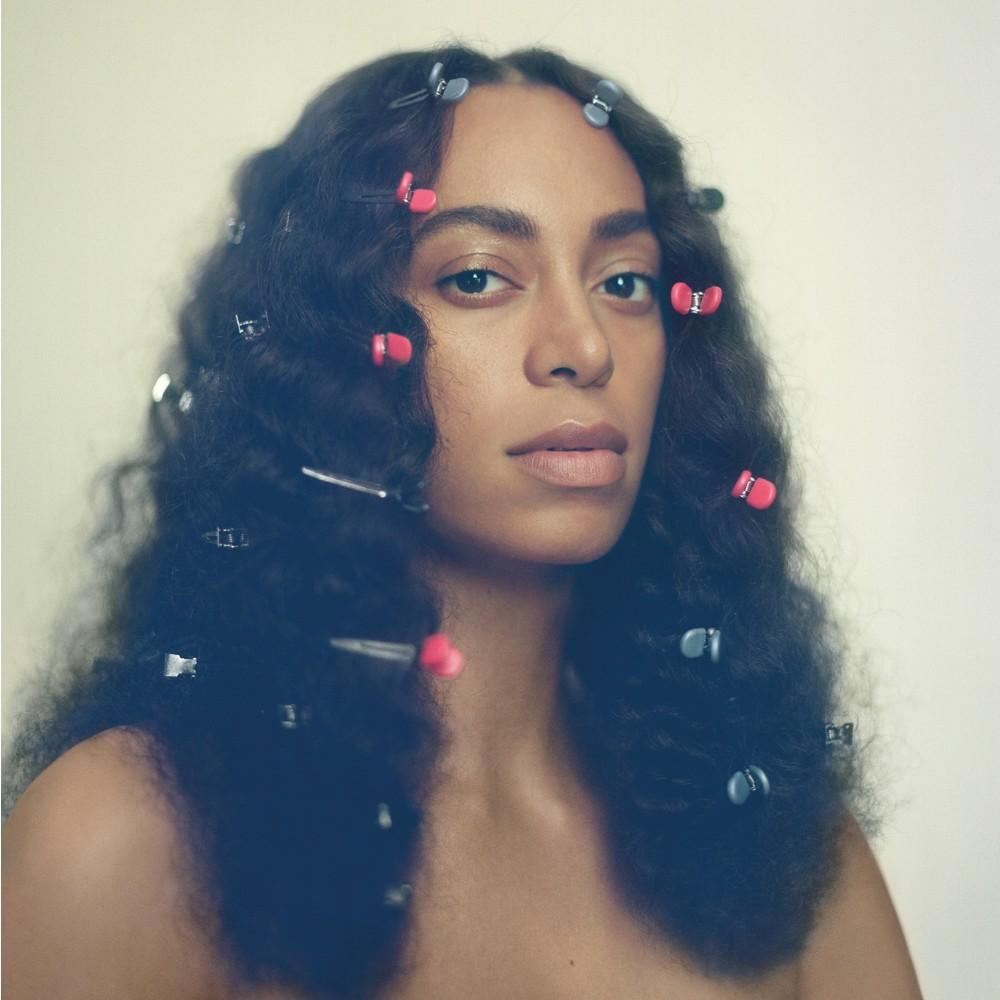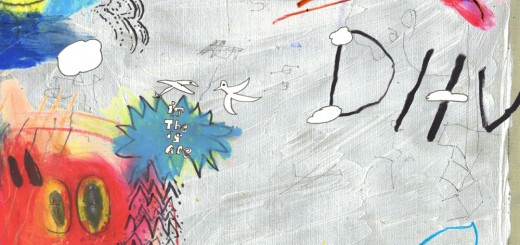A SEAT AT THE TABLE by Solange

Genre: Neo-Soul, Alternative R&B
Favorite Tracks: “Mad (featuring Lil Wayne),” “Don’t Touch My Hair (featuring Sampha),” “F.U.B.U (featuring The-Dream and BJ The Chicago Kid),” “Junie (featuring Andre 3000)”
Ok, let’s get this over with: Solange Knowles has a pretty famous sister, whom you may have heard of. More or less all of Solange’s celebrity-making moments have occurred within the shadow of that sister, and seemingly those moments are what most remember her for; the Battle of the Billion Dollars On The Elevator is probably the most recently recognizable, but Solange could be found (literally) being in her sister’s shadow as far back as the early 00s, when she filled in for an injured Kelly Rowland in, you know, that one group her sister was in, and sang on the soundtrack of AUSTIN POWERS IN GOLDMEMBER while her sister was on screen. A good portion of Solange’s musical career has been spent establishing that while she embraces her sister and her success, their styles and artistry are quite distinct from each other. Though it means a lot of different things to this album, A SEAT AT THE TABLE’s title has a pretty on-the-nose meaning in relation to Solange, her career, and her personal life. However, to focus too much on that would be a disservice to an album and artist of Solange’s caliber, as she has created an outstanding album that proves she deserves to step out from the shadow she has spent such a long time in.
A SEAT AT THE TABLE is the latest in a series of hip hop and R&B records that deal with Blackness and racism as their primary themes, a reaction to institutional racism, disproportionate violence towards members of America’s Black communities, and fear of a police force that meets even peaceful protests with military-grade arms and far too often reacts to any ill-perceived threat from a Black person with deadly force. Several great albums from the last few years have explored these themes similarly, including but certainly not limited to D’Angelo’s BLACK MESSIAH, Kendrick Lamar’s TO PIMP A BUTTERFLY, LEMONADE by you-know-who, and Blood Orange’s FREETOWN SOUND. A SEAT AT THE TABLE quickly establishes a raison d’etre by being both about the effects of racism through a closely personal lens, and attempting to elevate and bring joy to both Solange and her Black listeners.
This album is, to borrow from the title of one of its tracks, made with a “for us, by us” attitude — that is to say, this is an album made for Black people, by a Black person. Rather than merely shouting from the rooftops as a more traditional “protest” album might, Solange chooses to stick to the “personal is political” model, and spends just as much time attempting to elevate its Black listeners as she does focusing on social issues and personal narratives. That focus plays to her strengths; the entire album is an emotional journey, starting with the melancholic “Weary” and working towards a more joyful ending. Stylistically, A SEAT AT THE TABLE most closely resembles a combination of the more contemplative and political works of classic Motown, late-90s Neo-Soul (particularly Erykah Badu), and a touch of synth-laden Funk. The album uses electronic and more traditional R&B instrumentation almost equally, and often to great effect. Solange provides potent harmonies throughout the album, and sounds equally at home singing over torchy electronic beats, sauntering down-tempo soul, and uptempo synth-funk. Vocally, she shines most technically in her higher range, but is an adept conveyor of emotion with her entire voice.
The thesis of the album is perfectly summed up on “Tina Taught Me,” a spoken interlude featuring Tina Beyince-Lawson, Solange’s mother: “I think part of it is accepting that it’s so much beauty in being Black and that’s the thing that, I guess, I get emotional about because I’ve always known that. I’ve always been proud to be Black. Never wanted to be nothing else… and it really saddens me when we’re not allowed to express that pride in being Black, and that if you do, then it’s considered anti-white. No! You just pro-Black. And that’s okay.” One somewhat unusual aspect of this album is that Solange goes so far as to speak directly to white listeners in a few different instances, but most directly on “F.U.B.U”: “Don’t feel bad if you can’t sing along / Just be glad you got the whole wide world.” Solange does not pull punches with white appropriation of Black culture, nor the prevalence of white culture in the world we live in; however, like her mother says, being pro-Black does not mean being anti-white. It just means that Solange wants her and her listeners to have a seat at the table.
The ideas on this record that feel the most radical in a musical context are Solange’s ideas about the self. Not even LEMONADE, which took a similarly self-focused approach, feels quite as locked-in to the artist’s self-empowerment as A SEAT AT THE TABLE. Solange is not at all subtle about these ideas — how could she be, with a song that carries the subtitle “An Ode to Self Care” — and those instances are when this record really shines. The best moments of A SEAT AT THE TABLE are the ones when you cannot help but feel the confidence and positivity with which Solange writes and performs with. Like that famous sister of hers, Solange has showed us that she has the capacity to be utterly magnetic, but her magnetism is vastly different — it comes from a place of unbridled joy and an incredible capacity for honesty in her art. A SEAT AT THE TABLE will undoubtedly affect those who listen to it in different ways, but even if you can’t sing along, you’ll have a great time listening.
Verdict: Recommend



